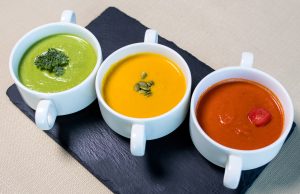The Cabbage Soup Diet, known for its promise of rapid weight loss, has piqued the interest of many individuals seeking a quick solution to shed pounds. However, beyond the allure of immediate results, questions linger about the diet’s long-term effectiveness and sustainability as a lifestyle choice. In this article, we will delve into the Cabbage Soup Diet’s effectiveness for weight loss and its potential for sustainable, lasting results.
Unpacking the Cabbage Soup Diet
Before we explore its effectiveness and sustainability, let’s reiterate the fundamentals of the Cabbage Soup Diet. It’s a short-term, low-calorie diet typically spanning seven days, with the cornerstone being a homemade cabbage soup. Each day has a specific food group or set of foods alongside the soup. The daily plan can be summarized as follows:
- Day 1: Cabbage soup and fruit (except bananas)
- Day 2: Cabbage soup, vegetables (no starchy vegetables), and a baked potato with a small pat of butter
- Day 3: Cabbage soup, a mixture of fruits and vegetables (no starchy vegetables)
- Day 4: Cabbage soup, up to eight bananas, and skim milk
- Day 5: Cabbage soup, lean protein (e.g., beef, chicken, or fish), and tomatoes
- Day 6: Cabbage soup, lean protein, and vegetables
- Day 7: Cabbage soup, brown rice, vegetables, and unsweetened fruit juice
Photo by Farhad Ibrahimzade: https://www.pexels.com/photo/close-up-shot-of-variety-of-soups-8738017/
Short-Term Weight Loss
The primary appeal of the Cabbage Soup Diet is its ability to deliver quick results. The diet’s low-calorie nature and diuretic effect can lead to a significant reduction in body weight over the course of a week. This rapid weight loss can serve as a motivator for those embarking on a more extended weight loss journey.
Effectiveness for Short-Term Weight Loss
The Cabbage Soup Diet is effective in the short term for losing weight. By adhering to the diet’s strict guidelines and consuming the low-calorie cabbage soup, many individuals have reported noticeable weight loss in as little as a week. This initial weight loss can be encouraging and motivating for those seeking to jumpstart their weight management efforts.
However, it’s important to recognize that this weight loss is primarily due to a reduction in calorie intake, loss of water weight, and not the sustainable loss of body fat. To maintain the initial weight loss, individuals must transition to a more balanced, calorie-controlled diet after completing the Cabbage Soup Diet.
Sustainability as a Lifestyle Choice
While the Cabbage Soup Diet may be effective for short-term weight loss, its sustainability as a long-term lifestyle choice is a topic of debate and concern. Several factors make it challenging to adopt this diet as a sustainable approach to healthy living:
1. Nutritional Deficiencies
The Cabbage Soup Diet lacks a balanced array of essential nutrients. It is low in protein and healthy fats, and its limited variety can lead to nutritional deficiencies. Sustainable diets should provide a wide range of nutrients to support overall health.
2. Limited Variety
The monotony of eating cabbage soup for an entire week can become monotonous and challenging to maintain in the long run. A sustainable diet should include a variety of foods to prevent boredom and ensure enjoyment.
3. Short-Term Focus
The Cabbage Soup Diet is explicitly designed for short-term use. It is not intended for long-term or ongoing weight management. A sustainable diet plan should focus on long-term lifestyle changes that can be maintained over time.
4. Potential Weight Regain
Once the Cabbage Soup Diet is completed, and regular eating habits are resumed, there is a risk of regaining the lost weight. The rapid weight loss experienced during the diet is often due to water loss and a calorie deficit. Sustained weight loss requires consistent, balanced eating and physical activity.
What Dietitians Recommend
Dietitians generally recommend the following:
- Short-Term Use: The Cabbage Soup Diet should only be used for a short duration and under specific circumstances, such as to kick-start a weight loss journey.
- Balanced, Sustainable Approach: For long-term success, individuals should adopt a balanced, sustainable approach to weight management that includes a variety of nutrient-rich foods and regular exercise.
- Consultation with Professionals: It’s advisable to consult with a registered dietitian or healthcare professional before making significant dietary changes or embarking on any extreme diets.
- Long-Term Focus: The primary focus should be on creating gradual, sustainable lifestyle changes that promote overall well-being and healthy living.
Photo by Quang Nguyen Vinh: https://www.pexels.com/photo/food-photography-of-ramen-noodle-2133989/
In Conclusion
The Cabbage Soup Diet is undoubtedly effective for short-term weight loss, offering rapid results that can serve as a motivator for those embarking on a weight management journey. However, it is not a sustainable choice for long-term dietary habits due to nutritional deficiencies, limited variety, and its short-term focus. For long-term success, individuals should consider balanced, sustainable dietary changes that promote overall well-being, with a focus on nutrient-rich foods and regular physical activity. The Cabbage Soup Diet may offer short-term benefits, but it is not a recipe for lasting, sustainable weight loss.






